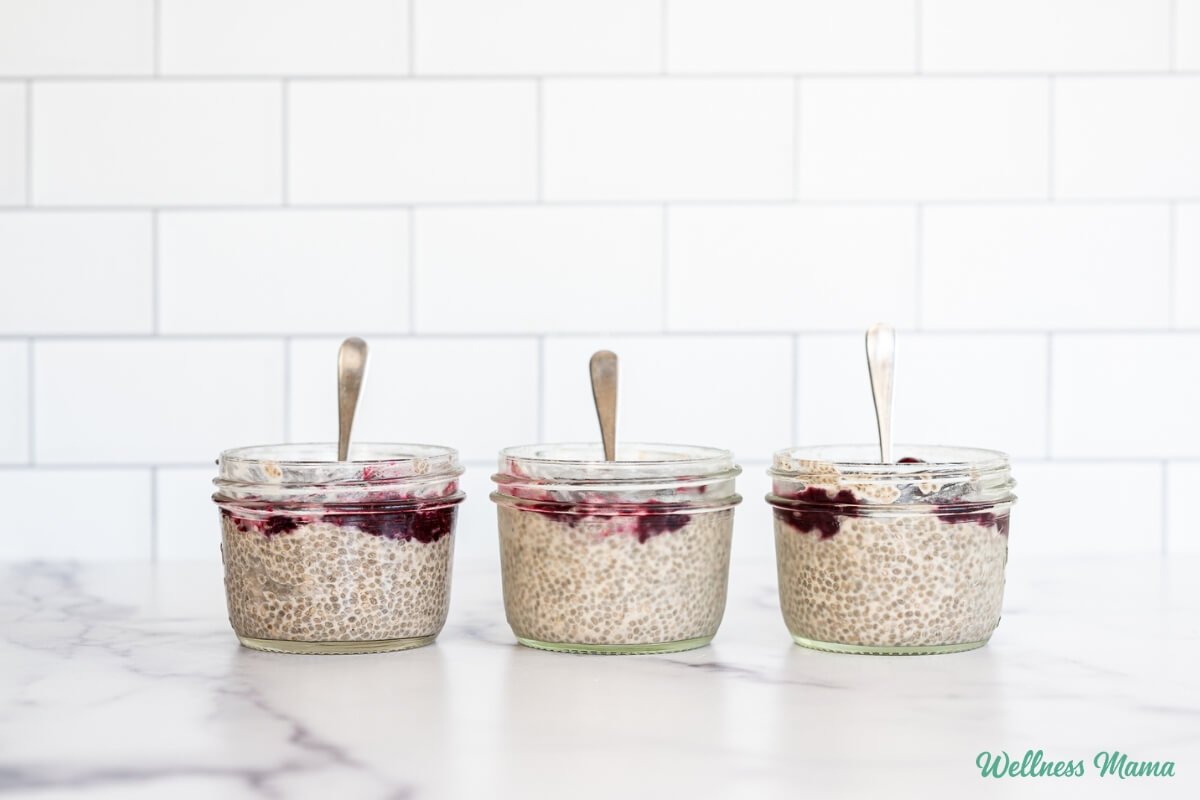
6 Healthy Habits to Adopt This Year
For many people, January is when we make New Year’s resolutions, setting high goals to better ourselves. The resolutions run a wide array of topics but include everything from losing weight to increasing our regular exercise to changing our eating habits. But sadly, about 80% of people ditch their resolutions by February. Instead, adopting simple, healthy habits is a great way to prevent burnout!
Because we set ourselves up for failure when we focus on a bunch of major changes all at once, there’s no shame in quitting. The problem is we want quick fixes with immediate outcomes. When we don’t see results quickly, frustration hits, and burnout results. Then we give up.
Instead, a healthier life often happens by introducing healthy habits you incorporate into your daily routine slowly over time so your habits stick better.
Free or Low-Cost Healthy Habits for the New Year
If you’re ready to try something different, you might want to adopt a new healthy habit. Building small habits to incorporate into your daily or weekly routine will make it easier to create long-term lifestyle habits. I’ve listed some habits I like to focus on, with mini-challenges for each. These suggestions are also topics that consistently come up with guests on my podcast as non-negotiables for health.
Please resist the temptation to think, “I should do all of these.” Pick one to focus on. Try one of the challenges for ten weeks (about the time it takes to form a new habit). After completing it, reward yourself by setting a new goal (and maybe a small reward!). If you need some tips or inspiration for incorporating new habits, I put together this short podcast episode to help!
1. Get Enough Sleep
Sleep is a non-negotiable for health. (Some sleep experts say it’s even more important than diet and exercise combined!) Sleep helps the body restore and heal, is vital for hormone production, improves mood, aids in weight loss, and more. In short, if you aren’t sleeping, you aren’t healthy.
Sleep is also free and is a pretty simple change to make if you commit to it. Granted, some people do have trouble falling or staying asleep, but there are often simple remedies to help with this as well.
The Challenge: Start small. Think through your bedtime routine. What’s the one thing you could change that would make the most impact right away?
- Buy some magnesium oil and apply it to your feet every night before bed. Reward yourself for keeping this habit for ten weeks by investing in something to improve your sleeping environment: new pajamas, a sleep mask, or a good book to read.
- Blue light from screens can interfere with sleep. After dinner, dim the lights in the house and wear blue-light-blocking glasses until bedtime. Reduce screen time and turn off social media. Instead, read a book! This small change doesn’t cost much but helps protect your body’s natural sleep cycle.
- For about 10-15 minutes before bed, put your legs up the wall. You can do this while meditating, reading, or thinking about things you’re grateful for from the day. Not only does it help with circulation, but you’ll reduce your stress, which helps you sleep better!
2. Drink Water
Just like sleep, water is essential to digestion, mental health, toxin removal, and more. Water is typically free and available to all of us, though purified water can cost a little upfront if you invest in a quality water filter.
But we don’t just need water… we need water with minerals! Did you know that our bodies are made up of 60% water? It’s not just water; it’s salt water! Minerals are vital to our bodies, and I find when I add them to my water, my sleep and stress are much better.
Though there are as many theories on how much water to drink as there are brands of bottled water, some good rules of thumb are:
- Don’t let yourself get really thirsty, as thirst is a good sign you need to drink water (obviously).
- Drink at least one cup of water for each cup of caffeinated beverage or alcohol you drink (in addition to your regular water consumption). Aim to get at least half of your body weight in ounces of water.
- To help get more vital minerals in your body, consider adding some salt to your water in the morning. Sound strange? Here are some reasons you might want to drink salt water daily.
The Challenge: A generic “I’ll drink more water” resolution will evaporate all too soon! Keep goals small and specific. An easy way to form a new habit is to tie it to some daily action already in the day, also called habit stacking.
- Every night, when cleaning the kitchen after dinner, make a pitcher of fruit and herb-flavored water to infuse overnight and drink the next day. The whole family will be more likely to drink it!
- Commit to having a mug of hot lemon water before coffee in the morning. It’s the perfect wake-up call for your body and your digestion, with plenty of health benefits in addition to the extra H2O.
- Try adding a teaspoon of unrefined sea salt to a quart of water in the morning. Or try a homemade electrolyte drink for a boost in minerals.
- I aim to have water with minerals every morning before I have a cup of coffee.
3. Reduce Stress
Although we often think of stress as a threat to our emotional and mental well-being, it can significantly impact our bodies in a variety of ways. It can cause high blood pressure, lead to weight gain, or wreak havoc on your digestive system and immune system.
When you’re stressed, you increase your risk of all types of chronic diseases, including heart disease. It even causes premature aging! Reducing your stress is the ultimate in self-care.
Of course, adding “reduce stress” to your to-do list isn’t going to help much without actionable steps you can take. There are many things you can do to help lower your stress but remember, we’re starting with one small habit!
One stress-reducing habit I love to use is meditation and breathwork. They not only lower blood pressure, but they also help reduce stress, put us in a better mood, and give us energy. Both help our bodies enter parasympathetic mode, which is different than the fight-or-flight mode we often live in (sympathetic mode).
Don’t feel like you have the time or space to meditate or breathe? There are simple breathwork exercises you can do anywhere, even when you’re sitting at a stop light or in traffic. Meditation can be as short as five minutes to reap amazing benefits. You can even do it with your kids!
The Challenge: This is always a tough one to tackle because, as moms, it often feels like there’s no time to step away and refocus. But there are small changes you can make that don’t require any time away for spa days (although I recommend those too if you can manage it!).
- Use a Mantra – Adopt an encouraging or calming mantra to repeat throughout the day. One that really helps me is “Everything will work out perfectly.” Write it everywhere… on your fridge, on the mirror, and in a recurring reminder on your phone. Repeat, repeat, repeat! Repeat it when you get up, when you’re feeling stressed, and before you go to bed.
- Involve the Kids – If you’re driving around town, every time you stop at a light, practice taking deep breaths together. Or, add 5-10 minutes to their bedtime routine to meditate or do breathwork together. You’ll teach them how to manage their own stress too.
- Pray or Meditate – Even just five minutes a day is helpful. Attach this to a daily ritual you never miss, like your morning cup of coffee. If the idea of sitting still makes you scoff, check out this podcast on meditation for fidgety skeptics. You can find apps that have guided meditations and breathwork practices (some are free!).
4. Move
I’m not a fan of the word “exercise” because of its negative connotation (picture monotonous walking for miles on a treadmill while watching a stress-inducing news channel). However, physical activity is so important for both our mental and physical health.
Movement should be a normal part of human life, yet many of us aren’t getting enough. It should also be functional. Endless reps on an exercise machine don’t mean anything if they aren’t helping improve your daily life.
This is definitely an area you’ll want to experiment with to find what works for you and what you enjoy. If you find a form of movement (or a few) you love, you’ll be more likely to do it. For me, I’ve been lifting weights (strength training) about three times a week, and I try to walk a few miles every day. It’s a great way to get my heart rate up and helps maintain a healthy weight.
Also, it’s good to focus on useful movements, such as:
- Strength Training – useful if you ever need to carry someone out of a dangerous situation (house fire, car accident, etc.) or move an object without help. Also, carrying those bags of groceries in from the car or a kid up the stairs
- Sprinting – useful if you need to escape a bad situation, rabid dog, or other threat. Running a consecutive 26 miles probably won’t be as helpful here, but the ability to do a solid 100-meter sprint is vital.
- Walking – In the past, humans have moved a lot more than we do these days. Walking is good for posture, digestion, and bone health. Do it!
- Swimming – Great for overall health and lung capacity, but also useful if you ever fall into a body of water and need to be able to get out of it.
The Challenge: Functional exercises like walking, sprinting, etc. are free! If you need to up your movement quota, experiment with some different forms until you find your favorite.
- Pick one move to master and do it as soon as you get out of bed. Try plank, squats, or this spider crawl exercise.
- Plan to go for a walk and listen to a podcast or audiobook. That way, you’ll have something to look forward to while you walk.
- A few times a day, set a timer to take a movement break. This could be a walk around the block, some squats, holding a plank, jumping jacks, or high knees. Change up what you do each time so different areas of your body get the benefits. Start small with one a day then add on as you build the habit.
5. Healthy Eating
Healthy eating is a habit that has a major impact on your overall health. By cooking meals at home and avoiding the drive-through more often, you can improve your family’s health by lowering the risk of heart disease, high cholesterol, and type 2 diabetes.
One of my favorite ways to set my family up for success with eating healthy is to plan meals for the week and spend time prepping. I set aside time each week to plan out recipes my family loves (and new ones to try!), and then I create a shopping list. This helps me stay on track.
I also spend several hours prepping things for the week ahead. Lately, I’ve enjoyed a sort of capsule meal plan where I make standard proteins, sides, and veggies that can be combined to make meals throughout the week.
If your kids are older, like mine, you can involve them in the planning, shopping, prepping, and cooking. Obviously, what you can do for this one is based on the ages and stages of your kids. Even little kids can learn chopping and other food prep skills! This could be as simple as having them set the table or helping to clear it, all the way to finding a recipe they want to cook and making it on their own. You can also have them help you choose the meals, pick out the groceries at the store, or prep the food.
Teaching your kids how to create and cook a healthy diet is a great tool you can give them when they’re adults and live on their own. It also gives us the added benefit of time together! Plus, eating together is one of the most important things you can do for your family’s health.
The Challenge: Planning and prepping for meals can seem daunting. But if you start small and focus on one element at a time, you’ll soon see how rewarding and easy it can be.
- Meal Plan – Commit to meal plan each week. Start with all your family favorites to make it easy, or add one new one into the mix. Here’s my favorite, time-saving meal planning app! (use code WELLNESS20 for 20% off).
- Bulk-cook – I like to premake my proteins and veggies one afternoon a week (use this for an easy guide). This will save you time when you need to get dinner on the table because some of the work is already done! Plus, if you won’t be home one night, there are plenty of healthy, cooked foods your family can choose from.
- Takeout – Replace one takeout meal a week with a home-cooked family meal. You could create your own takeout recipe at home or make something else you enjoy (yes, homemade pizza counts!).
6. Get Sunlight
There’s so much research about how beneficial sunlight is for us. Most of us are deficient in vitamin D, which helps boost our moods and immune system. But sunlight does so much more for us than give us vitamin D! Getting morning sunlight, even for just ten minutes, helps balance hormones and circadian rhythm, lowers stress, and helps you sleep better.
I like to begin my day with some minerals or electrolytes outside on the front porch. When you sit outside, make sure your eyes are getting the rays too. I’m not talking about staring directly at the sun, but don’t wear sunglasses or glasses, as these reduce the benefit. You can close your eyes if you’re sensitive and build up to keeping your eyes open.
If it’s warm enough to go barefoot, you can also get some grounding in at the same time!
The Challenge: Since it’s best to get sunlight as early as possible in the day, try to get out early. I know it can be hard since mornings can be hectic. But taking even 5-10 minutes will have a big payoff.
- If you’re a morning person, commit to waking up slightly before the kids. Bring a book or your favorite drink outside for just 10-15 minutes first thing in the morning.
- Can’t get out early before the kids get up? Take them with you! It’s a great mood booster for everyone, and you’re teaching them healthy habits.
- Too cold where you live? As long as your eyes are exposed to the light, bundle up as much as you need. Looking at light through a window filters out the necessary wavelengths and is 50 times less effective than looking through an open window or going outside.
- Afternoon sunlight is also very important for producing vitamin D and hormone production. On warmer afternoons I try to expose as much skin as I can to the sun.
Building Healthy Habits
Although these are the top healthy habits that make my list, don’t feel the need to do them all at once.
For the last several years, I’ve stepped away from grand resolutions and instead focused on small, short-term goals or experiments. This mindset shift from resolutions to daily healthy habits has really helped, and I find that bigger changes naturally follow. Not only has it helped me become more committed to a healthier lifestyle, but it’s also helped my mental health.
What are some goals you have for this year? How are you planning on incorporating them for long-term success?




